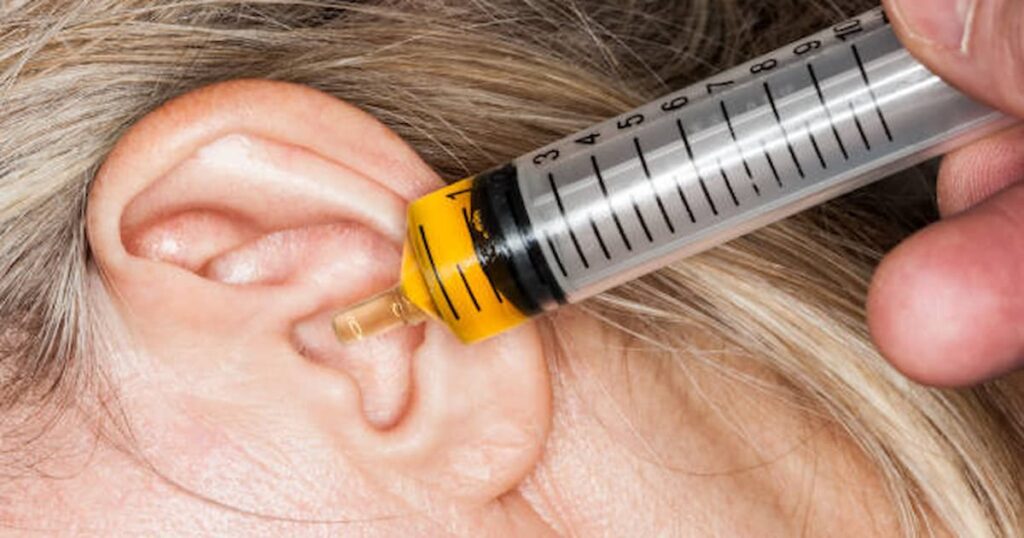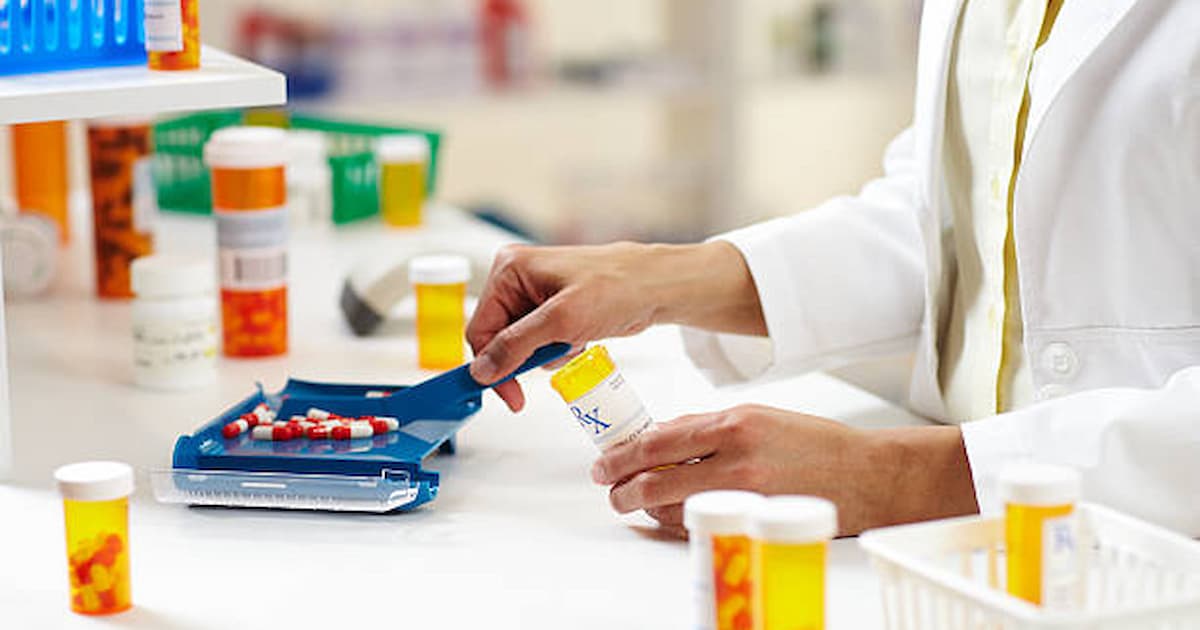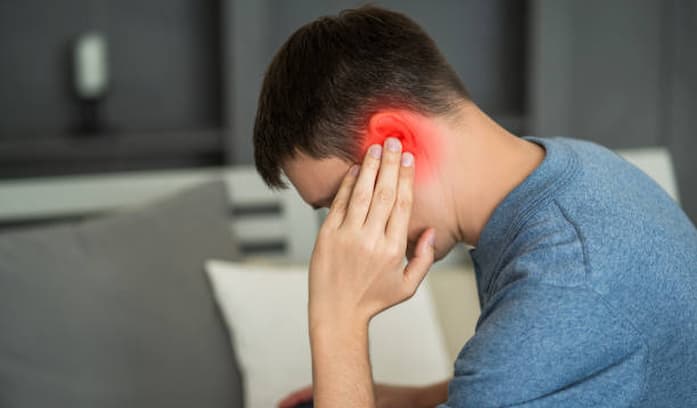Looking for safe and effective ear wax removal options in Leicester? Look no further than your The Local Pharmacy. We offer a variety of services to help you hear clearly and comfortably. To learn more about our microscution services, click here.
The role of ear wax in the prevention of infections and other ear-related conditions
Ear wax, also known as cerumen, plays a vital role in protecting your ear from infections and other ear-related conditions. It is a natural barrier secreted by the sebaceous and apocrine glands in the skin of the ear canal. Meanwhile, it contains antimicrobial properties that help to fight off bacteria and fungi.
Additionally, ear wax serves several crucial functions, which include the following:
- – Safeguarding the ear from bacterial infections by creating a mildly acidic environment.
- – It also helps to prevent dust and dirt from penetrating deep into the ear canal or reaching the eardrum.
- – Ear wax provides lubrication and protects the ear against injury or damage.
On the other hand, removing the ear wax excessively can also leave the ear canal unprotected and vulnerable to infections. As a result, an excessive build-up of ear wax may also lead to uncomfortable symptoms, which include the following:
- – Hearing loss
- – Extreme ear discomfort
- – Ear pain
Thus, finding the right balance between ear wax removal and preservation is crucial to maintain optimal ear health.

The protective function of ear wax in the ear canal
An ear canal is a delicate structure which needs protection from external factors. Ear wax in the canal is a natural shield that protects the ear canal from dust, dirt, and other foreign particles. Meanwhile, it also helps to keep the ear canal moist, preventing dryness and irritation.
Hence, ear wax is essential to the ear’s self-cleaning mechanism. It moves out of the ear canal naturally, carrying with it any accumulated dirt or debris.
Nevertheless, in some cases, the wax can build up, causing discomfort and hearing problems.
The impact of ear wax on the development of middle ear infections
An ear wax buildup can significantly impact the development of middle ear infections. A middle ear is located behind the eardrum, and excessive ear wax can prevent proper ventilation, leading to the accumulation of bacteria and fluid.
When you have too much ear wax, it can cause a few different symptoms. You might notice that your hearing is not as good as usual or that your ears are clogged. You may also experience an earache or a ringing or buzzing sound in your ears. Moreover, sometimes you might even feel dizzy and nauseous, which is called vertigo.
Consequently, regular ear wax removal can help prevent the development of middle ear infections. However, it is essential to use caution when removing ear wax to avoid damaging the delicate structures of the ear.

The role of ear wax in preventing the growth of bacteria and fungi in the ear canal
As mentioned before, ear wax contains antimicrobial properties that can help to prevent the growth of bacteria and fungi in the ear canal. These properties are essential for maintaining the ear’s natural defences against infections yet also against other ear-related conditions.
The importance of individualised approaches to ear wax management
Ear wax composition and properties vary from person to person. While some people produce more ear wax than others, the consistency and colour of the wax can also vary. Therefore, it is essential to take an individualised approach to ear wax management.
In addition, the type of ear wax you have can impact the method of removal and the frequency with which you need to remove it.
Therefore, we recommend seeking advice from our professional team to ensure that your ear wax management plan is tailored to your specific needs.

Let the pro’s look after your ears…
Are you looking for an ear wax checkup in Leicester? Look no further than The Local Pharmacy!
Our experienced staff can provide a thorough and gentle examination to determine if you need ear wax removal. Contact us today to book an appointment and take the first step towards better ear health. If you can’t see the service below on our calendar, then please get in touch with us directly at one of our branches.
This blog post was written on behalf of The Local Pharmacy by Pharmacy Mentor.
Discover related articles
Examining the similarities and contrasts between pharmacists and general practitioners can assist you in understanding the particular roles they play in delivering high-quality medical care. That said, trust The Local Pharmacy to find the best pharmacists in your area.
Similarities and differences between GPs and Pharmacists
Considering the two professions, both the General Practitioner and a Pharmacist are equally important in the healthcare industry. This is because they both provide medical services and advise their patients for the best of their well-being.
However, there are some similarities and differences that we should take into account to understand their roles more clearly.
Similarities
First and foremost, both General Practitioners and Pharmacists are healthcare professionals taught to provide medical advice and services to patients.
These services may include:
– Diagnosing the diseases
– Helping patients manage their health conditions
– Providing direct consultations to patients
– Helping them manage their condition
– Provide advice on medicine side effects and options
Furthermore, both General Practitioners and Pharmacists keep up-to-date with the latest medical knowledge to get better at medical research. It mainly includes advances in new medical services and technologies.
Differences
Moving on to the differences, General Practitioners typically have a medical degree and participate in further specialised training. Whereas pharmacists typically have a degree in pharmacy and complete a residency programme.
In addition, General Practitioners get training on how to diagnose illnesses and prescribe treatments. On the other hand, pharmacists typically provide testing procedures and advise on treatments and medicine interactions.
Furthermore, General Practitioners provide a wide range of healthcare services, including:
– Preventive care
– Chronic disease control
Whereas pharmacists are primarily involved in the dispensing and management of medications.
Lastly, General Practitioners typically work in medical clinics, whereas pharmacists work in pharmacies or hospitals.

What does a Pharmacist know better?
Pharmacists are highly trained healthcare professionals who play a vital role in ensuring the safe and effective use of medications.
While they perform several roles, some of their specialities include:
– Medications and Drug Interactions: Pharmacists have a detailed understanding of medications, including their uses, side effects, and potential drug interactions.
Also, they can advise patients on the safe and effective use of prescription and over-the-counter medications.
– Dosage and Administration: Pharmacists have expert knowledge of medication dosages and administration methods.
Plus, they ensure that patients receive the correct dose for their age, weight, and health conditions.
– Disease Management: Pharmacists get training on how to provide advice on how medications can help manage chronic conditions, including diabetes, high blood pressure, and heart disease.
– Side Effect Management: Pharmacists are also familiar with the side effects of medications and can advise patients on how to avoid them. Meanwhile, they can also suggest alternative treatments if a medication is causing severe side effects.
– Medication Safety: Pharmacists are specialists in medication safety and can advise patients on avoiding adverse reactions and interactions with other medications.
In addition, they help patients identify and report any potential side effects of medications.
Patient Counselling: Most importantly, pharmacists play an important role in patient counselling. They do it by providing information and answering questions about medications and health conditions.
Further, they can also help patients understand the instructions on their medication labels and how to use their medications correctly.

Find a Trusted Pharmacist in the UK with The Local Pharmacy
When it comes to your health and well-being, having access to a reliable pharmacist is essential. We are here for you if you need help managing medication for a chronic condition or have questions about your prescriptions. Look no further than The Local Pharmacy.
With our commitment to quality care and our dedicated team of experts, you can trust us to provide you with the care and support you need. So why wait?
This blog post was written on behalf of The Local Pharmacy by Pharmacy Mentor.
